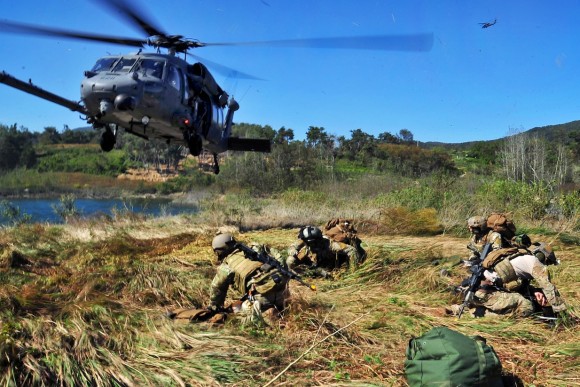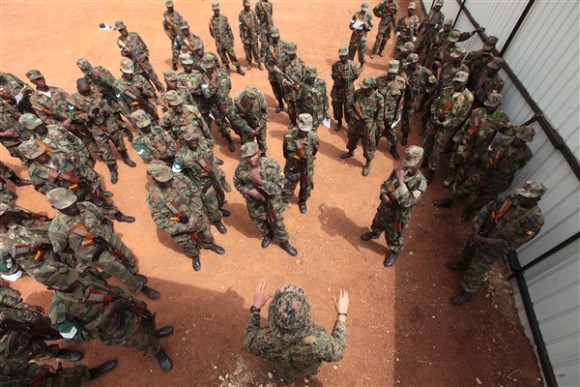A political sideshow to the escalating focus on the Nigerian militant group Boko Haram is what it means for Hillary Clinton’s presidential prospects. Boko Haram was not officially designated a terrorist group until Clinton stepped down and John Kerry became Secretary of State. This, Republicans tell us, reveals she is weak on terrorism and doesn’t have the leadership or foresight to keep the country safe as president.
To try and make a substantive political point on the basis of the farcical and arbitrary State Department terrorist list is laughable. The “official list” is so fickle and ludricous as to be useless in any serious political discussion except to demonstrate how illegitimate it is.
As I wrote last month:
The government puts individuals or groups on and takes them off according to its interests at the time: Nelson Mandela was on it before he became admired by the world as a man of peace, Saddam Hussein was on it until the U.S. decided it wanted to support him militarily against Iran in the 1980s, the Iranian group MEK was on it until 2012 when the U.S. decided having an Iranian dissident group off the terrorist list could be in its benefit, etc.
And of course, any militant groups that the U.S. wants to aid with money and weapons can’t be on the terrorist list, even if they conduct terrorist operations.
More than that, there was some internal logic to holding off on designating Boko Haram. New York Times:
Such a step would have made it illegal for any individual in the United States to provide “material or resources” to the group and, proponents say, would also have focused international attention on the danger the group posed.
But Johnnie Carson, who was the assistant secretary of state for African affairs from 2009 to 2013, said in an interview on Thursday that he had opposed making the designation “for six or seven different reasons.”
Mr. Carson said he was concerned that the move would generate publicity for the group and help it attract support from other extremists. He said he was also worried that the designation might legitimize a heavy-handed crackdown by Nigeria’s security forces at a time when American officials were urging them to avoid human rights abuses.
“It would have aligned us with a flawed Nigerian security strategy,” Mr. Carson said.
There was concern that the designation might prompt the group to attack American interests in the region. The Nigerian government also strongly opposed the move, fearing it would raise Boko Haram’s standing.
There are two important points to make on the basis of this reporting. First, this U.S. official implicitly reveals what I’ve already said about Boko Haram: that it is a localized militant group that could be antagonized to more ambitious goals in response to U.S. meddling.
Secondly, it has been confirmed in congressional testimony that the U.S. government has a secret list of groups and individuals it considers officially designated terrorists. That list is classified, meaning that the American people can’t even know who their own government considers enemies. But further, it means that the State Department’s designation is largely moot, because the U.S. government already was taking action against Boko Haram in a covert way going back several years and so probably already had the group on its secret list.





